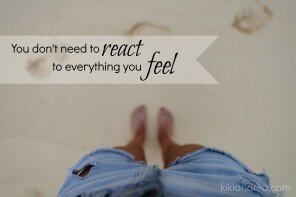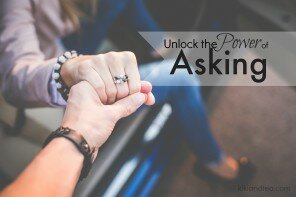
I don’t want your unsolicited advice
A couple of weeks back I met a woman for the first time. Our conversation went like this.
Me: “Hi, I’m Carly.”
Her: “Hi. What do you put on your face?”
Me: “Um. Wow, that was forward. I use a mix of paraffin, prescribed by my dermatologist.”
Her: “Surely there is something else you could use? All that paraffin is bad for you. Have you tried Emu Oil?”
Why thank you, stranger, for that unsolicited medical advice. Yep, she just launched in. So I got defensive. This woman had never met me until that moment. And she gave me medical advice.
So I said “thanks for your suggestion, but I do what works for me. I don’t want any judgment, especially from a stranger, about the treatment I use. And I don’t want suggestions for treatment from complete strangers”.
She was embarrassed and apologised. And so she should have been. Having a chronic illness gives people unwarranted permission to invade your space. While this kind of space invasion is much more well intentioned than the stares and comments about my appearance, it’s no less annoying. And the judgement about using paraffin – that’s especially annoying. There’s also the offers of prayers, so that I can be cured. Don’t. Even. Start. Me. I’ve been told that prayer will cure me (when current medicine won’t), that my parents and I sinned before I was born, and my head has been directed to quite a few strangers’ shoulders to engage in prayer. Enough!
My daily treatment is fairly simple and affordable (paraffin and the occasional antibiotic, painkillers and sulphate free shampoos and shower washes). It works for me, and there are few side effects other than very slippery everything. If I swapped my paraffin to a water or plant based moisturiser, my skin would be dryer and at a greater risk of infection.
There’s an assumption that despite living with an illness for part of all of my life, my parents and I haven’t looked at other treatments or even made educated decisions. I can assure them that when my dermatologist suggests a new drug or cream, I read the literature they give me, ask friends their opinions, and consider how much it will impact on my current quality of life, plus what additional costs there would be. My Twitter friend Diane describes unsolicited medical advice as “the worst ever, like you haven’t looked at your options as an intelligent adult able to make decisions”.

Don’t want to listen to your advice. I know what’s best for me.
When I was little, my parents took me to all sorts of natural therapists, hoping for a cure. I’ve had goat’s milk, grape juice, noni juice, mangosteen, aloe vera, various liquids applied to my tongue with an eye dropper and Chinese herbal medicine. I remember travelling to a small town along the Murray River to get some of Percy’s Powder – a concoction of unidentified powders that tasted a bit like it came from the riverbed itself. I had to mix it with water and drink it. Yum. Years later, my parents commented that they didn’t know what was in Percy’s Powder – it could have been poison. I assume it wasn’t because I lived to tell this tale.
I receive a number of emails and tweets and responses on online forums with suggestions about natural products I should use. I reply with a thank you, saying that I have my own treatments, backed up by the top dermatologists in the country.
As my friend Michelle who has Dysautonomia says, “It shits me. Yes complete stranger, you have more medical knowledge after 3 seconds than me and my doctors after years.” Michelle also went on to say that she is often given the offer of a cure, or told she is sick because of her heathen ways. “The ‘punishment’ angle gets me riled up, almost as much as the ‘teach me a lesson’ stuff.”
Hayley, a friend with complex Regional Pain Syndrome, added “I watched a ‘relignut’ tear apart a girl in the US with my condition once, it was very upsetting.”
Being offered medical advice from strangers makes the social dynamic really awkward. You both think each other is rude, and it’s a definite conversation killer. While in London, I went to the theatre on the West End. It was late, I was tired, and frankly quite bored with the production. Often when I am tired, I become agitated, and so found myself very itchy. The woman seated next to me offered me some tablets, during a song. I politely said “no thanks”. Meaning well, I am sure, the woman offered them to me again, wanting to relieve me of my itch. She told me she was a doctor. I said to her, firmly but politely, “thank you, but I can’t accept medicine from a stranger”. She got a bit huffy and told me she just wanted what’s best for me. I looked at my allergy bracelet which states latex and codeine, and thought of the “stranger danger” cup I used to use when brushing my teeth when I was a little girl. “Thank you, but I have my own medications”. She whispered something to her partner, and then got up to get a drink. Upon returning, she stepped on my foot. The situation became more awkward.
While I understand alternative medicines can complement traditional medicines, and that peoples’ intentions are well-meaning, I do wish people (many with no medical knowledge or experience with a particular illness) would hold back on offering medical advice and prayers. I really do know how to manage my illness after all these years. I don’t need your aloe vera or your prayers.
Do you ever get offered unsolicited advice? What’s the most common advice you’re offered?








